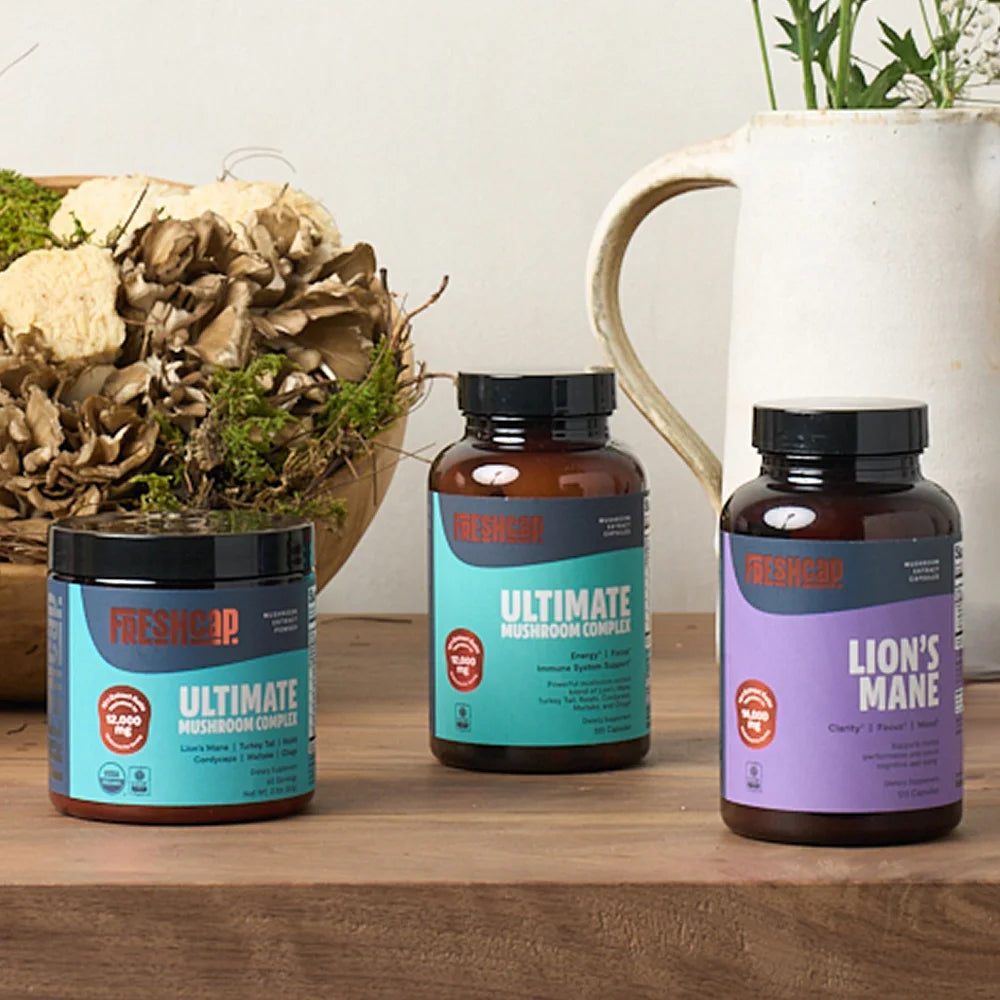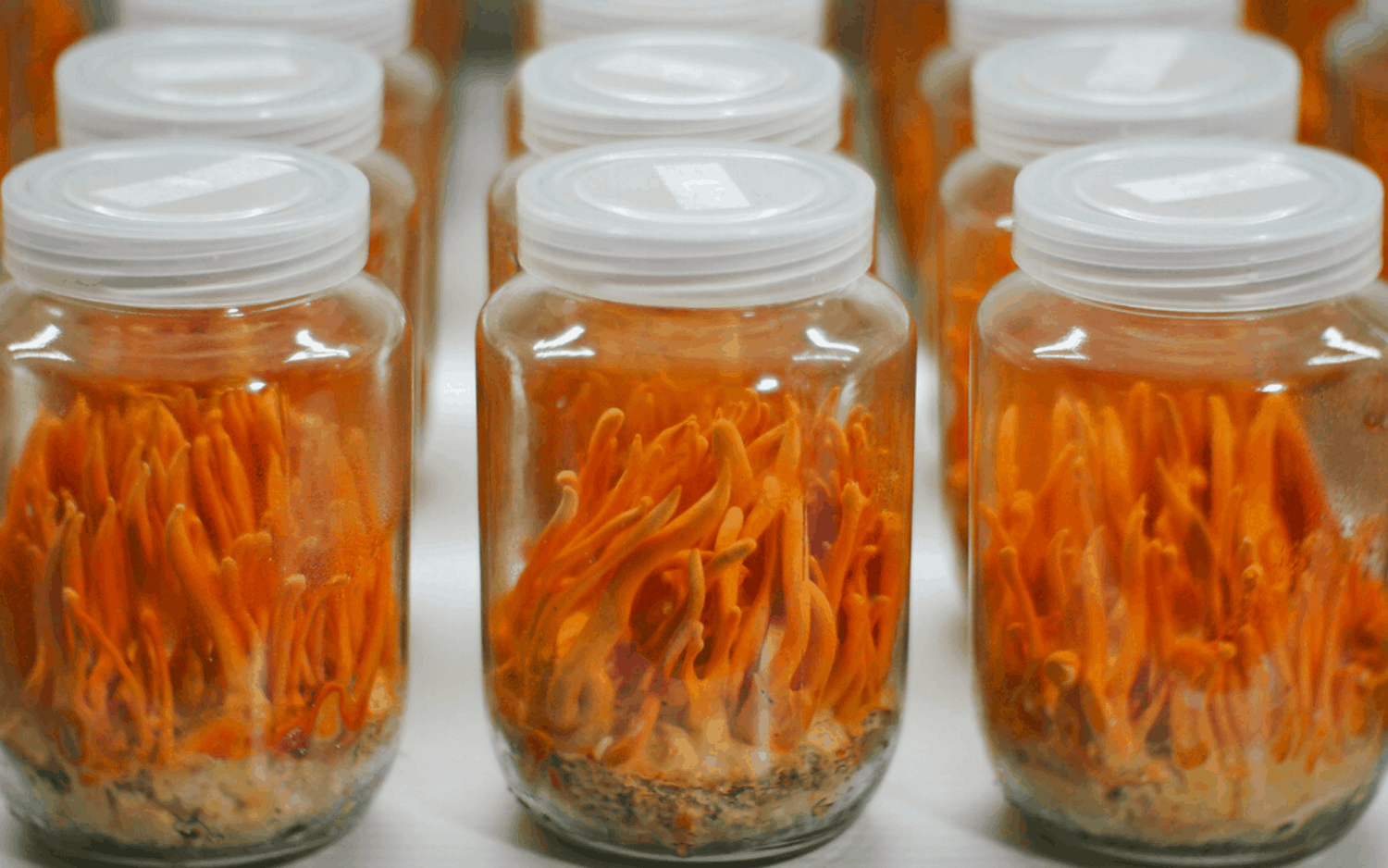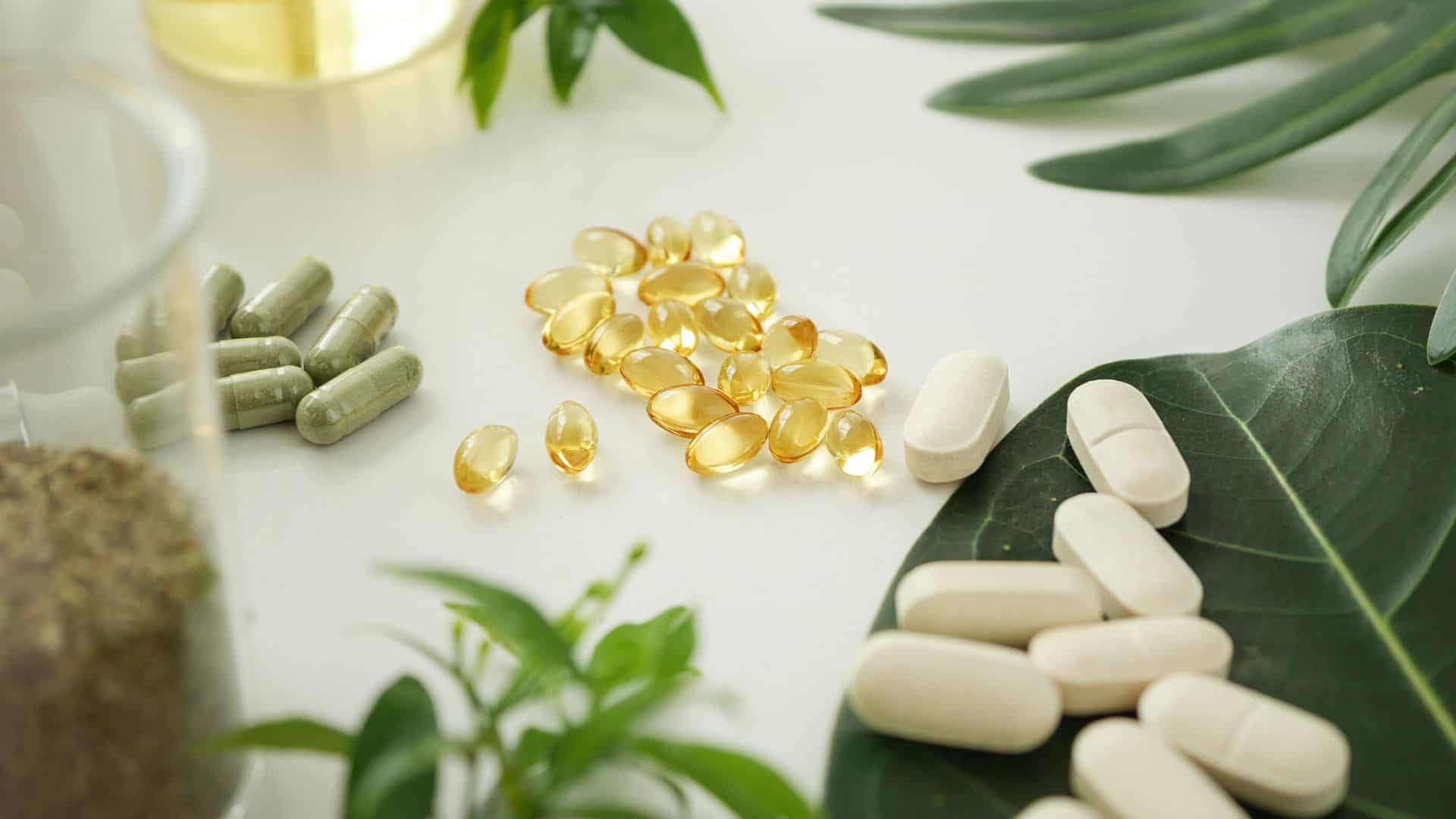Lion's mane and cordyceps are two of nature's most potent medicinal mushrooms. Both of these functional fungi can stimulate your brain, body, and immune system in unique ways. When it comes to lion's mane vs. cordyceps, which is right for you? Let's weigh the health benefits of each functional mushroom extract so you can decide.
What is Lion's Mane Mushroom?

The words "beautiful" and "mushroom don't typically go together (at least for non-mushroom enthusiasts) but lion's mane is an exception. You can't miss this medicinal mushroom with its flowing white or off-white strands that give it its name. Those strands are technically called teeth. Lion's mane belongs to a group of fungi called tooth mushrooms that share a similar shape. Also known as Hericium Erinaceus, lion's mane grows in cool climates on hardwoods throughout North America, Europe, and Asia. As far as flavor goes, many people compare lion's mane to lobster or crab. However, you can reap the benefits of lion's mane through convenient mushroom extracts and powders.
What are the Health Benefits of Lion's Mane Mushroom?

Lion's mane mushroom is a potent fungus that functions as a nootropic to support mental health and the nervous system on multiple levels thanks to its high concentration of beta-glucans, polysaccharides, antioxidants, and other powerful substances.
Stimulates Nerve Growth Factor (NGF)
The biggest health benefit to taking lion's mane mushroom is that it stimulates nerve growth factor which helps your brain and nervous system in a few ways:- Potentially improving short term memory and other cognitive deficits (2)
- Speed up recovery from nerve damage or nervous system injuries -- especially stroke
Soothes Depression and Anxiety Symptoms
Some studies suggest that lion's mane mushroom can aid depression and anxiety symptoms as well. Experts believe that chronic inflammation plays a key role in many cases of depression. The unique anti-inflammatory effects of lion's mane reduce anxiety and depression symptoms while targeting and regenerating specific areas of the brain responsible for these conditions. (3)What is Cordyceps?

Cordyceps isn't your typical cap-n-stem mushroom. Some species of Cordyceps (like Cordyceps sinensis) are a parasitic fungus that grow on insects, often caterpillars. (4) The fungus starts to grow on the head of a bug, triggers a sort of psychosis, and takes over the insect's brain to spread its spores. Crazy, huh? Don't worry vegans. In most conventional cordyceps extracts, like the ones available from FreshCap Mushrooms, modern methods allow us to produce cordyceps without the use of insects. Naturally, cordyceps requires high humidity levels to grow. You can find it in Asian countries like Nepal, China, and Vietnam. Like lion's mane, cordyceps mushrooms are also a staple in traditional Chinese medicine.
What are the Health Benefits of Cordyceps?

Cordyceps are the perfect choice not just for boosting your immune system but making the most of your workouts too.
Boosts ATP and Exercise Performance
Studies show that taking cordyceps before working out can boost your ATP production (that's what every cell in your body uses for energy). (5) Not only that, but cordyceps also have a positive effect on oxygen uptake. On the fence? Consider this. In 1993, the Chinese women's Olympic track team smashed three world records in a single event. The press immediately flung around accusations of doping, but the Chinese women finally revealed that cordyceps was their secret weapon!Powerful Anti-Inflammatory
While lion's mane reduces mental and nervous system inflammation, cordyceps functions as a physical anti-inflammatory on several levels. Studies show that the interesting fungus fights inflammation in the skin when applied topically. (6) That's not all. Cordyceps also functions as an anti-inflammatory in the respiratory system for defending against asthma flareups. (7) Since the bioactive compounds in cordyceps stop your body from producing inflammatory enzymes, you can reach for it as a natural alternative to Motrin for several types of physical inflammation. (8)Lion's Mane Vs. Cordyceps: How Do These Adaptogens Differ?
Here's some good news. Both of these fungi (9, 10)- May boost immune function
- Have potential anti-cancer activity
- May support healthy blood sugar levels
- May have anti-aging properties
- May reduce your risk of heart disease
How to Take Lion's Mane or Cordyceps
It's easy to incorporate not only lion's mane or cordyceps but also turkey tail, reishi mushroom, shiitake mushroom, and others in your diet -- without ever firing up the stove. Medicinal mushroom extracts are powders you can easily add to your smoothies, teas, mushroom coffee, and other recipes. Plus, the fungi already come extracted so you don't have to worry about steeping in hot water to draw out the beneficial compounds. Just toss a scoop into your drink and you're good to go!




